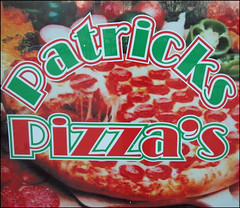I like the Food Network game show Chopped. It’s cool to see the unusual ingredients the contests must use and the amazing things they make with them. The competitors are experienced and/or trained chefs. They know everything about the tools of their trade, from the knives to the appliances to the techniques to the ingredients.
Although they’re probably not planning a flash fiction reality game show any time soon (darn!), we writers need to know the tools of our trade just as well—perhaps even more so, since we don’t have the excuse of a 20-minute time limit or a set of necessary ingredients we’ve never seen before. One of the ingredients we always need is grammar.
 It’s not optional! We know, obviously, we’re not going to get published with dozens of dangling modifiers and comma splices littering every page. “I have critique partners who’ll catch all that,” claim some aspiring authors. That’s a very worrisome attitude for someone who calls himself a writer, trying to argue that grammar is 1.) not important enough to learn and 2.) something I can shuttle off onto someone else.
It’s not optional! We know, obviously, we’re not going to get published with dozens of dangling modifiers and comma splices littering every page. “I have critique partners who’ll catch all that,” claim some aspiring authors. That’s a very worrisome attitude for someone who calls himself a writer, trying to argue that grammar is 1.) not important enough to learn and 2.) something I can shuttle off onto someone else.
If you want to be a writer, grammar is YOUR job.
Imagine if a cook wanted to become an executive chef, but he absolutely refused to learn knife techniques, or how to use a frying pan, or what a risotto should taste like. Would you take his goal seriously, or would you think he wasn’t really dedicated to it?
But, our imaginary cook argues, when I’m an executive chef, I’ll have other people to do those things for me. The people who’re beneath me. Yeah, he will—but he’ll also have people he’ll need to teach. And if they mess up, they’re not going to be the only ones held responsible.
If you have your name on a published book, writing and the English language are your business—even if you want to claim you’re only a storyteller. People will think you know something about those subjects. (Duh, I know this isn’t always right, but they’ll assume it anyway.) How are you going to feel (and look!) if someone asks you a basic question and you can’t answer? Or what if you can’t tell good grammar from bad and you pass along something unreadable to your agent or editor? What will they think?
Grammar is not impossible—and it’s not optional. You don’t have to learn the exact definition of a periphrastic tense (though obviously it might come in handy if you’re my CP 
We all make mistakes—but we all need to try not to. That might mean learning to write excellent grammar on the first try (and I do believe that can be learned!), or it might mean a rigorous self-edit. Critique partners and copy editors will always help, but the primary responsibility—and effort—should come from the writer himself.
What do you think? Is grammar important? Could you use some grammar instruction?
Photo by Robert Johnson


Hi, Jordan! We did it! Congratulations! I have an award for you!!